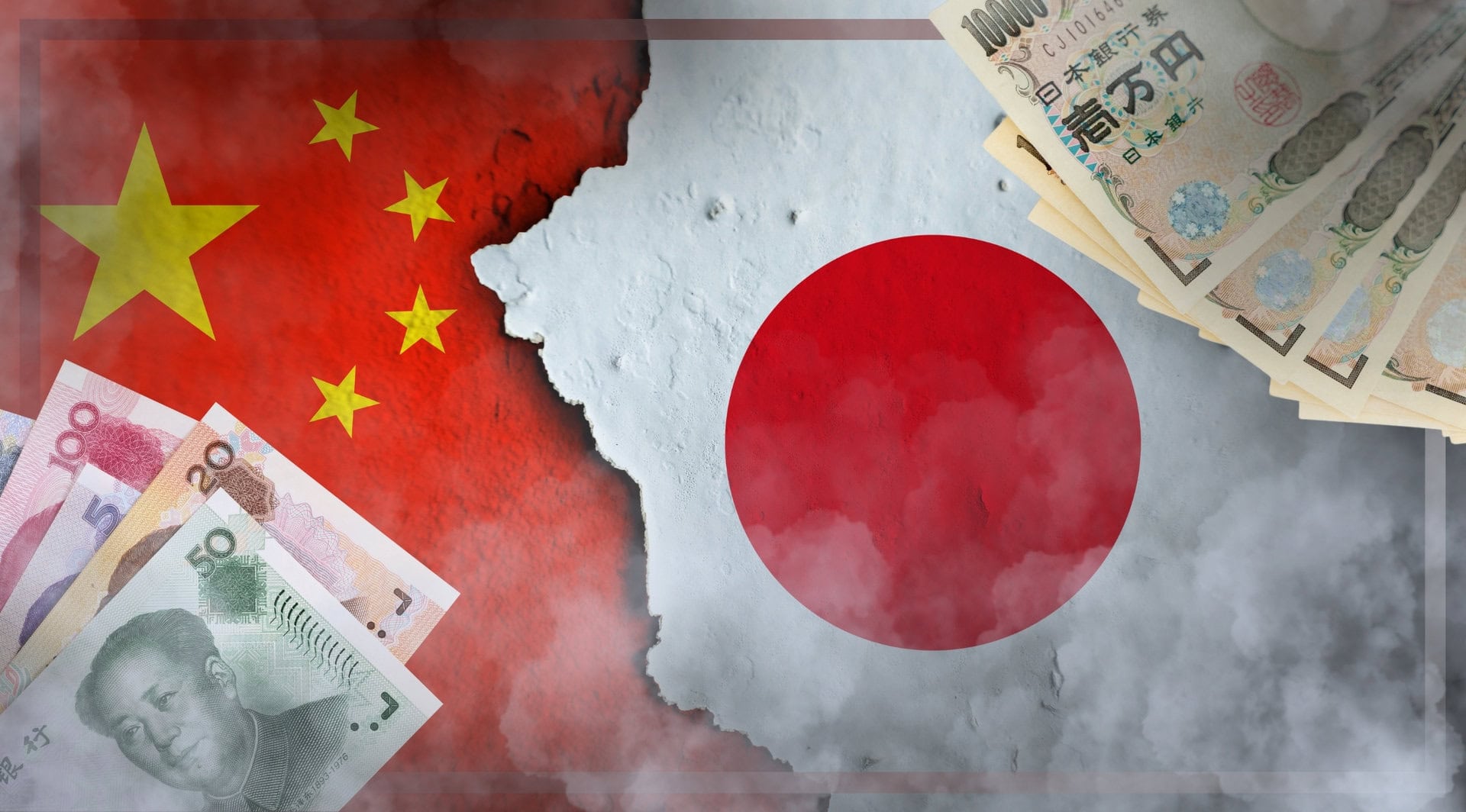In the past few trading sessions, the Japanese yen (JPY) has traded at multi-decade lows against the US dollar (USD).
Despite significant amounts of intervention from the Japanese central bank, the greenback has gained around 7.5% against the yen since the start of the year alone, with the Japanese currency currently at 155.47 against the dollar. Since the start of 2021, the dollar has gained more than 50% against the yen.
Several factors have been cited as driving the yen to these historic lows. The large discrepancies in interest rates between the US and Japan have potentially encouraged capital flows out of Tokyo and into the greenback. Yields on US government bonds have also been significantly higher than those offered on Japanese bonds, similarly encouraging traders to hold dollar-denominated assets.
The large discrepancies in #interestrates between the US and #Japan – with the former offering rates of up to 5.5% and Tokyo rates still negative at -0.1% – has further encouraged traders to hold the #dollar and thereby achieve greater yields.https://t.co/blZA0QWXAM
— #DisruptionBanking (@DisruptionBank) October 30, 2023
But could there be another, more political, reason for the weakness of the Japanese yen? Michael Howell, CEO of the global liquidity research firm CrossBorder Capital, has made waves by suggesting that Western governments could be driving down the value of the yen in order to attack Japan’s neighbour and apparent adversary, China.
Howell said recently that “my view is that – and it has been for two or three years now – and maybe it’s a maverick view, but I think that the yen is a stalking horse to basically undermine the Chinese yuan.”
“The easiest currency cross of the majors to manipulate by government is the yen/dollar cross, and I think they’ve deliberately pushed the yen down to put pressure on China,” he added.
Is the Yen Being Manipulated to Undermine the Chinese Yuan?
— Michael A. Gayed, CFA (@leadlagreport) April 25, 2024
Check the full interview at https://t.co/6NmVPeNC9B pic.twitter.com/69uFqtm8QK
It is certainly true that China is highly exposed to a weak Japanese yen. On a general level, a weaker JPY is likely to slow down capital inflows from Japan into China, and make Chinese goods less competitive compared to Japanese products. A cheaper yen makes Japanese products less expensive on global markets, incentivising individuals and companies to purchase Japanese (rather than Chinese) goods.
This is particularly true when it comes to Chinese manufacturing. Reuters recently reported that “some analysts say the yen’s weakness threatens to erode the competitive advantage of Chinese manufacturers.”
At a time when Western governments are increasingly expressing concerns that their domestic industries are being overtaken by cheaper (and in many cases superior) Chinese manufactured goods, could they be taking drastic measures to stunt its advance?
It could also be the case that the West is going after the Japanese yen because it often serves as a proxy for China. AUD/JPY is a common proxy trade for China’s outlook, and is one which does not involve the dollar, but the strength of the yen is often seen as an indicator of how well the Chinese economy, and that of Asia, is faring.
Given the Chinese renminbi (RMB) is heavily managed by the Chinese central bank, the Japanese yen, and indeed the Korean won to an extent, has emerged as a useful proxy to trade on – and perhaps undermine – China.
It is impossible to get in the minds of the traders that are dumping Japanese assets and driving down the value of the yen. It is also hard to ascertain whether this is a coordinated attack on the Japanese yen and Chinese economy. But Howell’s insights are certainly interesting in revealing some of the potential motivations at play.
Author: Harry Clynch
#Japan #China #JPY #ForeignExchange















